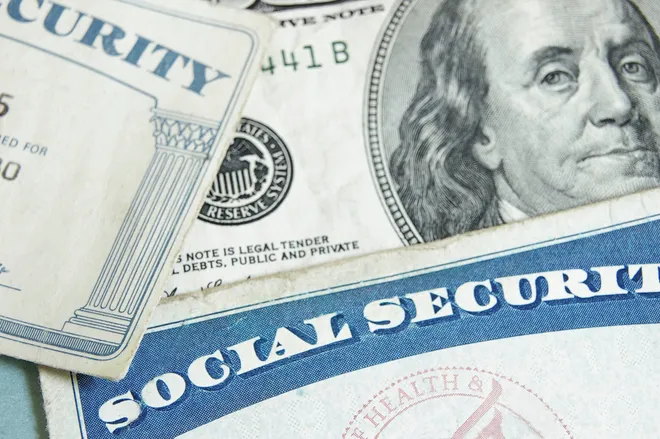
Social Security Retirement Benefits Before 70.
It makes sense on the surface to wait as long as you can to claim Social Security retirement benefits. If you wait until you are 70 to claim these benefits, you’ll get around 25% more than you would have if you had claimed them at your official full retirement age (FRA), which is between 66 and 67. This is because you will have maxed out your monthly payment.
If you start receiving benefits at the earliest feasible age of 62, on the other hand, your monthly cheque will be 30% less than what you planned to pay when you reached your FRA. (Adjust as needed for filing dates that fall between these two extremes.)
However, you could argue that you should claim Social Security sooner rather than later, even though it will lower the amount of money you will get in the end. I’m considering about making that choice myself in the not-too-distant future, and I have three good reasons.
1. Cuts to payments may happen sooner rather than later
The dispute over Social Security’s lack of money is old and too political, and it’s likely to be settled before it becomes a real problem. But if it does end up forcing everyone to pay less in the near future, claiming early will let me get 100% of the age-adjusted amount I’m owed for a longer time.
In other words, I’d rather have all of a smaller sum I’m owed for a longer time than risk getting only part of what I’m owed after waiting. That’s a win for me.
The most current report on the program’s health came out in early June from the nonpartisan Committee for a Responsible Federal Budget. It means that people who get Social Security will get 19% to 23% less money in 2034, unless something happens in the meanwhile.
I still won’t be able to obtain any benefits by then, but I’ll be getting close. But if the Committee’s prediction is incorrect by even a few years, I will be affected by the cut. That’s why I’m keeping a careful eye on the situation. I could at least get a few years’ worth of full benefits before the program runs out of money and my payments go down.
Keep in mind that I can think this way because of the other two reasons I’m also thinking about claiming Social Security before I turn 70.
2. I can make more money with the money
Social Security’s effective return on your money is about 2.5% last year, which is about the same as the average over the prior 40 years of 6%. You can usually expect a return of around 2% over the rate of inflation for that year. However, 2023 was a big exception that made the program’s solvency difficulties worse.
That doesn’t mean that the Social Security Administration (SSA) decides how much you will get in benefits based on how well it does with the $2.7 trillion it presently has in assets. No, they’re not.
Higher interest rates do help this fund grow, but most of the payments it makes to retirees right now come from FICA taxes that workers are paying into Social Security. The fund’s assets are mostly just there to smooth out the ups and downs in people’s taxable incomes. This pool of money earns higher interest rates, which just helps the program stay flexible.
But once you hit 62 and are entitled for at least partial Social Security benefits for the rest of your life, the equation for risk versus return changes. There might not be many more benefits to waiting until you’re 70 to file. That’s especially true if your 35 years of highest earnings are behind you instead of ahead of you.
You might be better off in the long run if you can put this money into the stock market and earn something closer to its average annual increase of roughly 10%. For example, you might turn this money into an annuity, which would give you another source of lifelong income.
Most private insurance companies that sell guaranteed lifetime-income annuities pay between 4% and 6% per year to clients who start payments in their 60s. clients who start to annuitise their nest eggs in their 70s can lock in rates of 8% or more. Not too awful.
That’s fine if you don’t like annuities. This is one way to compare lifetime income benefits from Social Security. There are other ways to turn cash into steady income, like buying good dividend stocks. You just need the freedom that cash can give you, which Social Security doesn’t.
3. I don’t mind payments going down because of income from work.
Lastly, I will probably start getting my Social Security retirement benefits well before I turn 70. However, I will probably keep working (at least part-time) long after I start getting benefits.
People who have already looked into this know the risk: If you start working and making taxable money when you’re already getting benefits, those benefits could go down. If you haven’t reached full retirement age yet this year, the SSA will cut your full-year retirement benefits by $1 for every $2 you make in taxable income above $23,400.
These guidelines are a little different for the year you turn 65 and become fully retired. The Social Security Administration will take $1 out of payments for every $3 earned over $62,160 for people who reach their FRA in 2025. Both income limits go up all the time.
So the worry is understandable: anyone under their FRA who makes enough money at employment might quickly lose their Social Security stipend. A lot of people don’t know this about this rule: You aren’t really losing money. The SSA gives you credit for your future benefits based on how much money you didn’t get in the meanwhile.
But why would you bother claiming benefits if you know that your job-based pay will probably mean you don’t get much, if any, Social Security yet? If you’re under your FRA and don’t want to deal with the hassle of having your income change every year or keeping the SSA up to date, that’s a good reason not to do it.
If you’ve already hit your FRA (about age 67), though, you have the best of both worlds. During this time, you can work as much as you want and still get your Social Security payments. In fact, if you make enough taxable income, you might even be able to increase your monthly benefit in the future.
If this is your plan and you’re not yet at your full retirement age, be careful. Once the SSA figures out how much it owes you each month based on your income from the previous year, you have to make that payment for a whole year until it is recalculated and changed.
Also, if you’re self-employed and your income and work schedule aren’t always the same, the reporting procedure might be a bit of a nuisance. If this applies to you, get in touch with the SSA for more information.






1 thought on “3 Smart Reasons I’m Claiming Social Security Retirement Benefits Before 70”